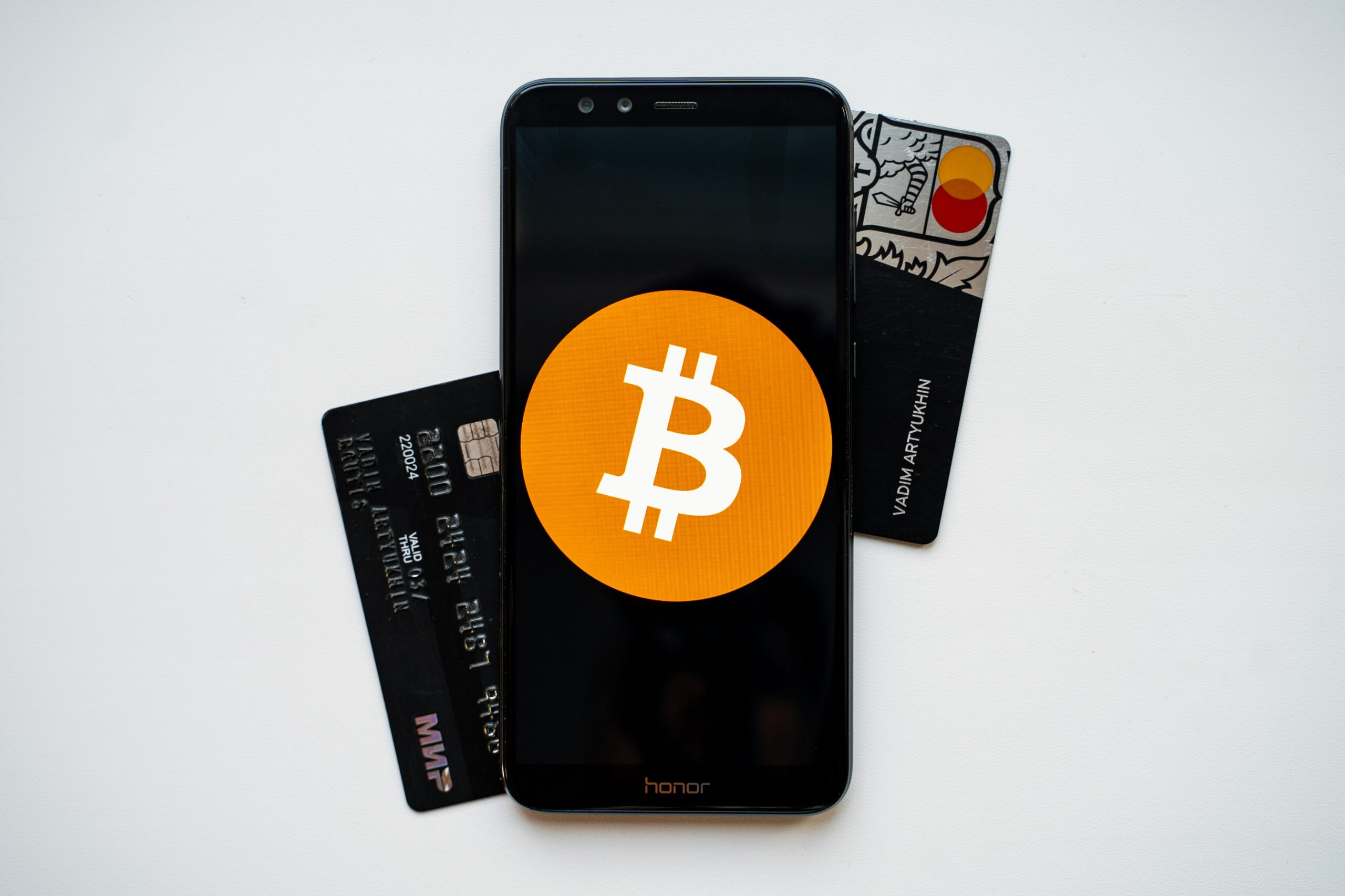There has been a significant movement in society toward digital currencies as a result of the easy incorporation of cryptocurrencies into the basics of our financial operations. This has created the way for innovative financial products, such as crypto credit cards, combining the traditional utility of credit with the dynamic potential of cryptocurrencies.
As these schemes become more widely accepted, the amount of frauds that target cautious people has drastically increased. One noted example of this is the Revolut scam, in which users have lost a total of £34 million to fraudulent schemes, activating the alarms to preventative actions to stop this kind of incident.
This emphasizes how important is to be prepared with information and techniques to successfully deal with the dangerous ways of financial fraud. In this post, we’ll get into what is a crypto credit card, how it works, and if it is safe for your finances.
What are Crypto Credit Cards?
Crypto credit cards are credit cards that allow you to spend traditional fiat currency and earn rewards in cryptocurrency for your purchases, offering more flexibility in bonus options compared to traditional credit cards.
The rewards feature is particularly significant as it provides an avenue for users to engage with and accumulate cryptocurrencies without direct investment, potentially capitalizing on the market’s growth while enjoying the benefits of a conventional credit card.
How Do Crypto Credit Cards Work?
Crypto credit cards function similarly to traditional credit cards but offer a distinctive reward structure. Here’s how they operate:
1-Usage
- Like standard credit cards, crypto credit cards are utilized for purchasing goods and services both in-store and online.
- Transactions are made in fiat currency, with a monthly statement provided to users detailing their expenditures.
2-Rewards
- Crypto credit card users receive rewards in the form of cryptocurrency, allowing them to choose which crypto they receive.
- The rewards system varies among different crypto credit cards, influencing the choice of card based on the preferred rewards accumulation method.
3-Reward Rates and Payouts
- Some cards offer increased accumulation rates after reaching certain spending points or in specific categories like dining or groceries.
- Reward payout schedules vary, with some cards distributing crypto rewards monthly and others after each transaction.
Are Crypto Credit Cards Safe?
While crypto credit cards present an attractive opportunity to earn cryptocurrency rewards on everyday purchases, they carry many risks that potential users should consider:
1-Investment Risks
The temptation of earning cryptocurrency as a reward can sometimes surpass the volatile nature of digital currencies. Unlike stable cash back or points, the value of crypto reward can fluctuate wildly, introducing an element of risk. Today’s lucrative bonuses reward potentially reduce in value tomorrow, impacting the overall benefits of using these cards.
2-Company Failure Risk
The cryptocurrency market has seen its share of high-profile failures, with companies and exchanges facing liquidity issues or outright collapse. If a crypto credit card provider were to fail, the digital rewards held could become blocked in bankruptcy proceedings, potentially causing them inaccessible to cardholders.
3-Unclear Regulations
The crypto industry is still steering a complex and evolving regulatory landscape. This uncertainty can impact crypto credit card operations, affecting how rewards are earned, stored, and taxed. The lack of clear regulations could expose users to unexpected legal and financial risks.
4-Absence Insurance
Traditional bank accounts in the United States are insured by the Federal Deposit Insurance Corporation (FDIC) for $250,000, providing a safety net for depositors. Cryptocurrencies do not enjoy this level of protection. This absence of insurance means that in the event of a platform’s failure, users may have no recourse to recover their digital assets.
5-Fraud and Chargeback Issues
Cryptocurrency transactions are fundamentally irreversible, which contrasts with the chargeback mechanisms available for traditional credit card purchases. This discrepancy can create vulnerabilities, as fraudulent transactions may be more difficult to contest and reverse, leaving cardholders potentially exposed for unauthorized purchases.
6-Compliance Risks
Operating within the anonymous and decentralized nature of cryptocurrencies poses significant compliance risks, especially concerning Anti-Money Laundering (AML) and Know Your Customer (KYC) regulations. Crypto credit card providers and users must guide these requirements carefully to avoid legal complications.
7-Market Volatility
Perhaps the most well-known risk associated with cryptocurrencies is their market volatility. The value of rewards earned today can drastically change in a short period, affecting the real-world value of the earnings. This volatility can impact not only the rewards themselves but also the financial stability of the issuers offering these cards.
Introducing Crypto Credit Cards by Visa and Mastercard
Visa and Mastercard, leading giants in the credit card industry, are making substantial strides in the digital currency space with the development of crypto cards. These efforts highlight their acknowledgment of the critical role that blockchain technology and cryptocurrencies are balanced to play in reshaping the financial landscape.
By integrating digital assets into their payment infrastructures, they aim to mix the innovative edge of cryptocurrencies with the reliability and widespread acceptance of traditional payment methods.
Visa’s Crypto Card Ventures
Visa has launched partnerships with over 70 cryptocurrency platforms to launch crypto-linked debit and credit cards, facilitating the seamless conversion of cryptocurrency to fiat currency for everyday purchases.
High-profile collaborations include those with Crypto.com, Kucoin, and Bitpanda, improving the utility and accessibility of cryptocurrencies for a broad user base. Furthermore, Visa’s alliance with the Bitcoin Fold rewards company underscores its commitment to not only simplifying crypto transactions but also rewarding users in the process.
Mastercard’s Approach to Crypto Cards
Mastercard’s strategy in the digital assets realm focuses on providing diverse options for digital value transactions. By teaming up with crypto platforms such as Uphold, Gemini, and BitPay, Mastercard aims to create crypto cards that offer a practical solution for spending digital currencies.
These initiatives reflect Mastercard’s dedication to promoting the adoption of blockchain technology and digital currencies, thereby offering customers, retailers, and businesses a bridge to the future of finance.
Challenges of Integrating Digital and Traditional Systems
The move by Visa and Mastercard into crypto cards marks a crucial step towards mixing digital and traditional finance, expanding access and convenience. However, it brings challenges such as cryptocurrency volatility and security issues, highlighting the importance of strong protections and regulatory compliance to ensure user safety and trust.
Revolut Scam’s Case
Revolut, a leading European neobank, has recognized a significant challenge within the financial industry— the alarming rise in card scams, specially authorised push payment (APP) scams. These sophisticated fraud schemes involve tricking consumers into sending money directly to criminals, posing a severe risk to customer security and trust
With the financial sector witnessing a dramatic increase in fraud-related losses, amounting to a 70% surge in recent years, Revolut has identified an urgent need to improve its fraud prevention mechanisms.
Revolut’s Solution: Advanced AI Scam-Detection Feature
Revolut has launched an innovative AI-based scam-detection feature, designed to fortify its customers against the tide of financial fraud. This advanced feature represents a key improvement to Revolut’s existing security measures, specifically targeting APP scams by using AI and Large Language Models (LLMs).
The AI system works by analyzing transaction data in real time to identify potential scams, effectively preventing fraudulent payments before they occur. This approach not only interrupts the scammer’s influence but also educates consumers about fraud tactics through the Revolut app, thereby reinforcing their defense against potential threats.
Conclusion
Using crypto credit cards wisely involves careful consideration and staying informed. The attraction of earning cryptocurrency rewards comes with the responsibility to keep up to date with potential scams and risks, such as the Revolut Scam, which can quickly impact your financial security.
These situations highlight the need to constantly educate yourself and stay informed about the latest in cryptocurrency fraud. It’s essential to keep learning and monitoring developments in this area to protect your finances against unexpected threats. By being vigilant and well-informed, you can make safer choices and protect your finances.
We Want to Hear From You!
The fight against cryptocurrency scams is a community effort at Crypto Scam Defense Network, and your insights are invaluable. Have you encountered a scam, or do you have questions about navigating the complex world of digital currency? Maybe you have suggestions or want to share your story to help others. Whatever your experience, we’re here to listen and support you.
Reach out to us at hello@cryptoscamdefensenetwork.com. Share your stories, ask questions, or make comments. Your voice is crucial to building a resilient and informed community. Together, we can improve our defenses and promote a safer digital space for all.
Be a part of the change. Your story matters.
Photos via Unsplash







